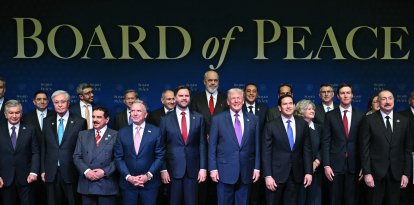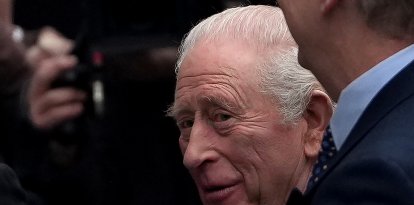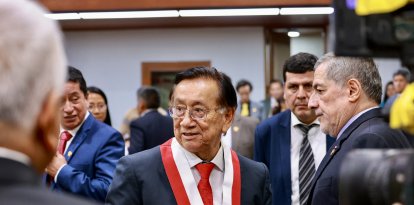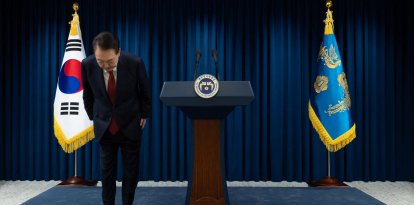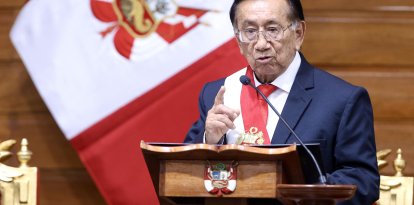EU countries agree to lift all their sanctions on Syria
After the United States, and the new Syrian leader, Ahmed al-Sharaa visited Paris, the European bloc seems increasingly willing to normalize its relations with Syria.
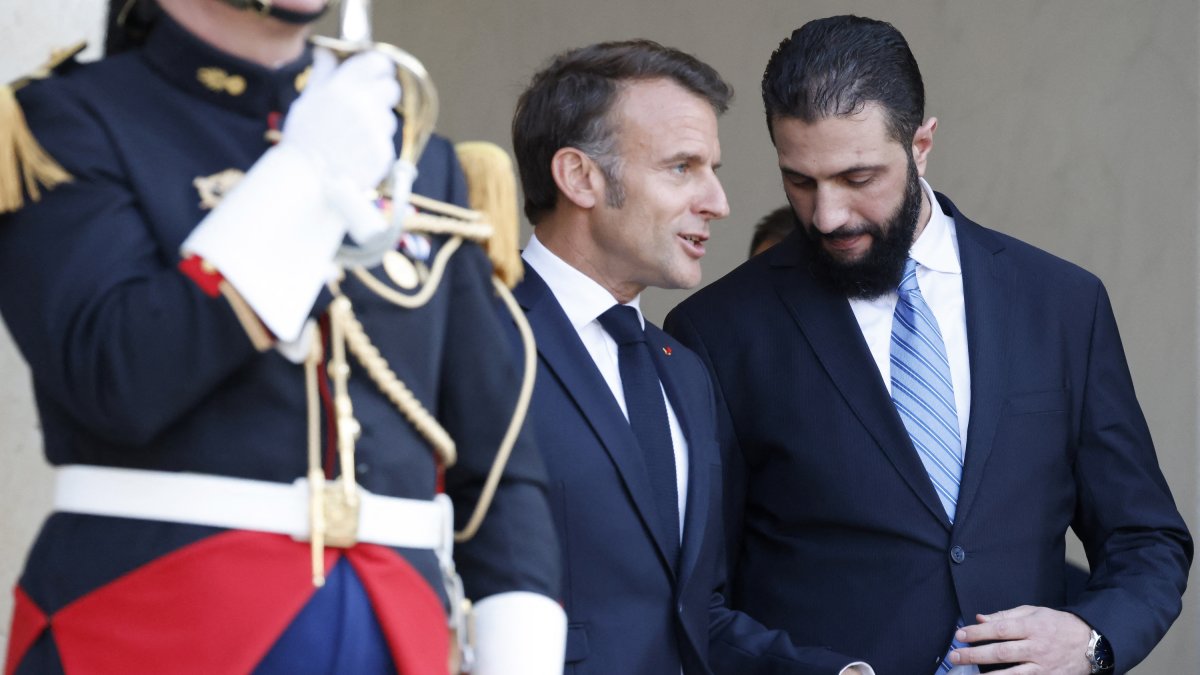
Emmanuel Macron and Syrian President Ahmed al-Sharaa.
European Union countries agreed on Tuesday to lift all economic sanctions on Syria to support the country’s recovery, according to diplomatic sources.
EU countries' ambassadors in Brussels reached the agreement, which is to be formalized later in the day by foreign ministers, the diplomatic sources said.
U.S. President Donald Trump announced last week the end of his country's sanctions on Syria.
The new Syrian leadership, which overthrew the government of Bashar al-Assad, was calling for an end to the crippling sanctions that Western countries had adopted.
The EU had already suspended some of its restrictive measures hitting the Syrian economy in February.
EU diplomats said the deal should lift sanctions that isolated Syrian banks from the global system and froze central bank assets.
But diplomats said the bloc intended to impose new individual sanctions on those responsible for stirring ethnic tensions after the deadly attacks against the Alawite minority.
New sanctions for Russia
This Tuesday, German Defense Minister Boris Pistorius said that it was clear from the conversation between Trump and Putin that the Russian leader "is not yet ready to make concessions." According to Pistorius, Putin "is not really interested in peace," and is only willing to talk about "a ceasefire under conditions."
EU diplomats already have in the pipeline the implementation of a new package of sanctions on Russia. The bloc already advanced that in case Moscow does not accept a ceasefire in Ukraine it would adopt restrictive measures against that country's economy.
Similarly, EU diplomacy chief Kaja Kallas on Tuesday called on the United States to take "strong action" in case Russia does not accept an unconditional ceasefire in Ukraine.














